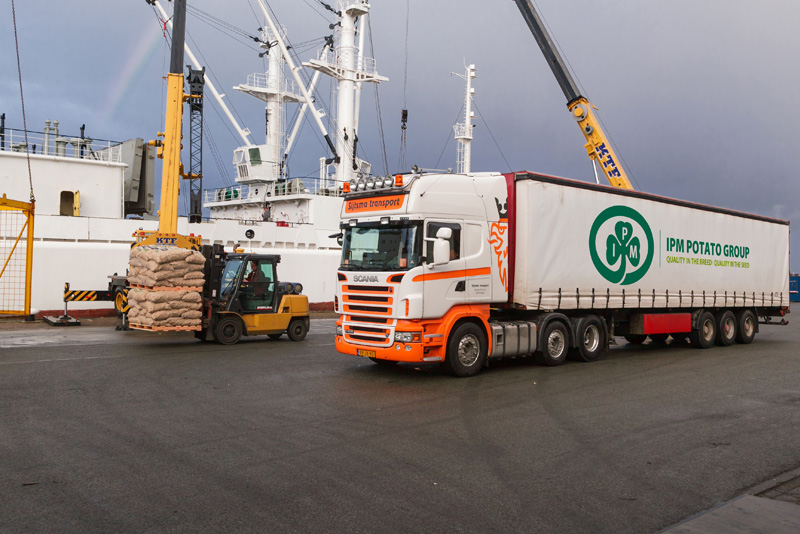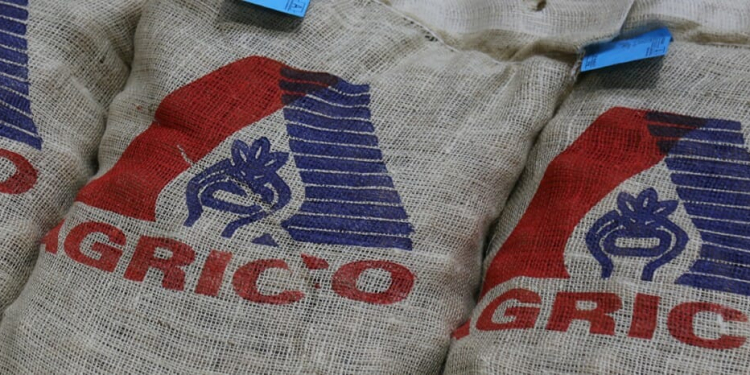Direct import of Dutch seed potatoes by arable farmers in England and Wales is possible. This is the conclusion of the Dutch Food and Consumer Product Safety Authority (NVWA) after a request from the NAO

This is subject to the condition that growers in the countries mentioned are not allowed to market the seed potatoes locally, according to the British Ministry of the Environment, Food and Rural Affairs (DEFRA). NVWA bases this conclusion on information provided by NAO and its members. This was announced by NAO secretary for seed potatoes and policy specialist Jan Gottschall on the Potato World website.
Country document adjusted
NVWA has recently adjusted the country document on the basis of cases and questions asked. The document states, among other things, that seed potatoes may be supplied to ware potato growers who are themselves importers. A phytosanitary certificate is required for import, which must state, among other things, that the seed potatoes are free of ring rot and brown rot.
Another condition is that direct import is only possible within the protected area in Northern England if the area to be planted is smaller than 0.1 hectare. Direct import is also possible for the planting of early potatoes. The direct import rule does not apply to Scotland. Growers are only allowed to plant seed potatoes that have been marketed in accordance with the rules of the ‘Seed Potato (Scotland) Regulations 2015’ . This is not the case with direct imports by the grower.
Equivalent to UK
Furthermore, for common exports to the United Kingdom (UK), DEFRA must recognize the country of origin (the Netherlands) as equivalent to the UK. The Netherlands must then comply with the legislation of the three countries within the UK. At the request of NAO, NVWA is investigating whether Dutch seed comply with the ‘Seed Potato Regulations’ of England, Wales and Scotland. There is no definitive answer on this yet. The Netherlands has submitted a request via Brussels.• Read also: Schouten wants a solution for seed potato trade with the British
The fact that seed potatoes from the European Union (EU) cannot be exported to the UK, apart from the exception option, is a result of Brexit. The UK has thus become a third country. The European Commission takes the position that European legislation provides that market access for seed potatoes from third countries, including the UK, is not permitted.
That is why the UK closed its borders to EU seed potatoes as of 1 July 2021. Despite the intensive lobbying of NAO and other organizations, the European Commission is not involved in this dossier, Gotschall reports.
Brexit costs EU a quarter of exports to the United Kingdom
Brexit has seriously disrupted trade between the European Union (EU) and the United Kingdom (UK). Over the past year, total UK imports from the EU fell by almost a quarter (24.8 percent), while exports to the EU fell by 13.1 percent. This is apparent from a report to the Agriculture Committee in the European Parliament. European companies are already suffering export losses due to the UK’s departure from the EU , while phytosanitary and veterinary customs controls have yet to be implemented.
Dutch MEPs draw attention to the export of seed potatoes. The Netherlands had a lively trade of more than 18,000 tons per year. That is now completely silent. ‘It must not be possible to recognize each other’s standards,’ said MEP Bert-Jan Ruissen (SGP). “And then to realize that 2021 was just another year of transition.” Ruissen fears that the real consequences will only be felt in the coming year. Then the physical checks and requirements regarding forms start.

Tightening controls
The British government will tighten up the certification requirement for most agricultural products on 1 January. The new requirements will come into effect between 1 July and 1 November 2022. Agri-food entrepreneurs exporting to the UK will need a UK importer or their own UK facility to arrange certification. An exception applies to trade with Northern Ireland.
A UK survey has shown that only one in four small importers is ready for the imminent changes, while one in eight importers said they were unable to prepare for the introduction of controls. It is already known that British customs have not even trained the necessary personnel and that the software programs of their computer equipment are not compatible with European systems.






